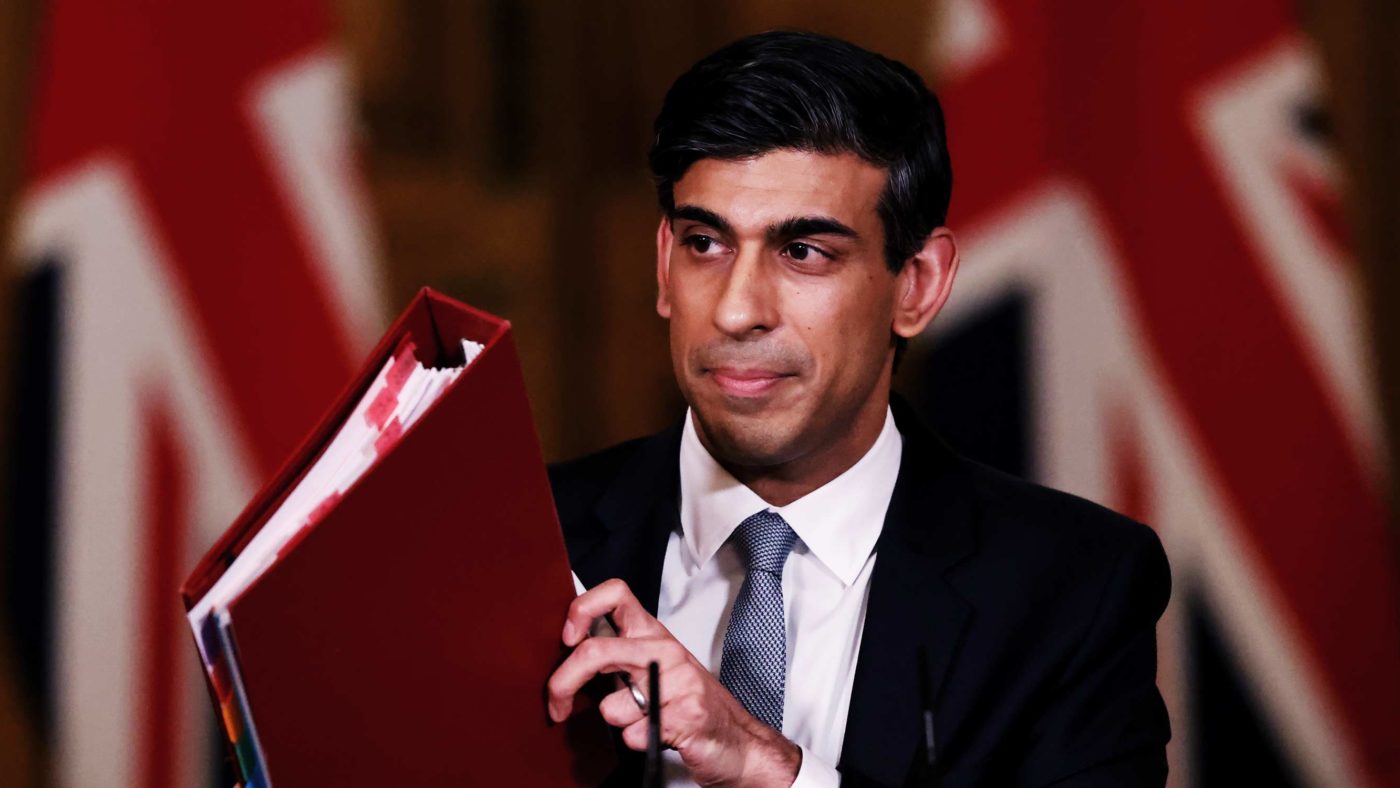Luck is an essential quality of political success and few contemporary politicians have been as lucky as Rishi Sunak.
Had it not been for Covid-19 there is every chance that, like many Chancellors before him, the public would barely know him from Adam. Not only that, with the furlough scheme, the pandemic has forced him to become the agent of a policy that is at once insanely popular and yet appears to go against his every economic inclination. He has made his own luck too of course – his calm demeanour contrasted favourably with a few too many of his colleagues during the early phase of the crisis. Still, he must surely count himself somewhat lucky to so thoroughly dominate all conversations surrounding the Tory succession, never mind possess easily the highest favourability ratings for a Chancellor in 15 years. Alas, as the cautionary tale of that Chancellor – Gordon Brown – shows, fate in politics can be an exceedingly cruel mistress. And I am afraid to say that for Rishi Sunak the luck probably stops here.
The problems that may derail Rishi all emerge from his strategically confused Budget last week. Both before and after the event, the Chancellor seemed keen to push two distinct messages – that the Conservatives are no longer a party of austerity, yet tough decisions are still needed to balance the country’s books. There was a substance to both messages too. On the latter, he can point to the fairly hefty hike in corporation tax; on the former that public spending in 2025 is projected to remain 2.1% higher, as a proportion of GDP, than before the pandemic. Unfortunately, what this figure conceals is that most of that planned spending is capital spending on infrastructure investment. In day-to-day terms, Sunak has committed the Government to a much more austere £15bn worth of public service cuts.
More importantly, even these numbers are based on the notion there will be no extra public spending needed to deal with the effects of the pandemic beyond 2021/22. And whilst Budgets are seldom a reliable source for fiscal forecasts, it is hard to think of a more heroic assumption in recent history than this. Make no mistake: the nurses’ pay battle is only the beginning. This week NHS leaders have made it crystal clear that without increased spending an extra endemic winter virus means cuts to care. Schools will need catch-up services for years, not months. Social services will need to re-establish trust with families practically forced by the state to remain in abusive households. From councils to courts, care homes to colleges – the legacy of lockdown will be a litany of bottlenecks and backlogs. Even when cleared, the scars will surely last decades.
As it happens, I think the state should expand to meet this need – but that is not the point of this article. Rather, my argument is it is the only logical political conclusion to the narrative the Tories are currently selling. That is not however, what the Chancellor is doing – instead he seems to think he can frame his infrastructure plans as anti-austerity, whilst simultaneously delivering a public realm that may feel like it is decaying just in time for the next election.
This is every bit as silly as sounds. But if you need further convincing consider that two recent political projects aligned on broadly similar economic territory – Ed Miliband’s Labour and Theresa May’s Tories. Both, interestingly, did quite well in mid-term polling before unravelling during an election. In part this was due to a credibility gap between their narrative ambition and substantive proposals. Yet the other effect of this curious positioning is that without tax cuts or higher day-to-day spending to offer, you have very little ‘retail policy’ options to present to the public. In the heat of a general election campaign, a new dual carriageway doesn’t cut quite cut it.
And what, Conservative-inclined readers may wonder, about tax cuts? How is it that the state can be so needy and yet the tax take historically large? The answer to that riddle is growth and the sad fact that the Government is on track to deliver a decade of it worse than Japan’s fabled “lost decade” of stagnation. Yes, there is a degree of contextual mitigation here – not every government, as the Chancellor is keen to point out, must grapple with a pandemic. Nevertheless, at no point have the Conservatives chosen, as Joe Biden or even Shinzo Abe has, to run the economy hot and see what different choices higher growth may present. That the Chancellor would ignore this path even when plotting a recovery from the worst slump for three centuries – and all for the cause of higher taxes – remains baffling on every level. Particularly as it might have allowed the Government to harness any ‘spirit of 45’ energy that may be released as society finally unlocks.
It may not matter; it may be that as in 2017 the Conservatives will remain lucky enough with their opponents to get away with such strategic fug. Yet for all the beating he has taken in the polls recently, Keir Starmer is not Jeremy Corbyn and nor will the Tories have a popular Brexit to fall back upon at the next election. Rishi Sunak’s strategy commits the Government to roll the pitch for higher state spending whilst ultimately doing little to address the social needs that require it. As far as luck goes, the Labour leader could hardly wish for more.
Click here to subscribe to our daily briefing – the best pieces from CapX and across the web.
CapX depends on the generosity of its readers. If you value what we do, please consider making a donation.


